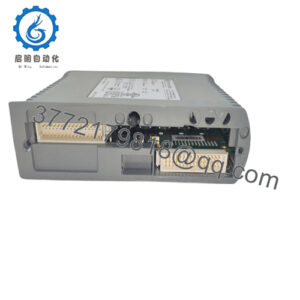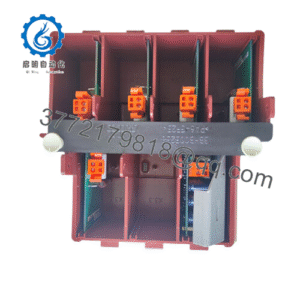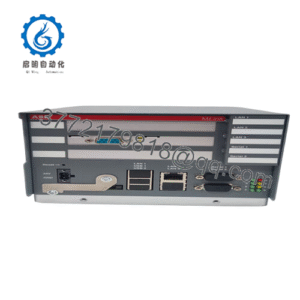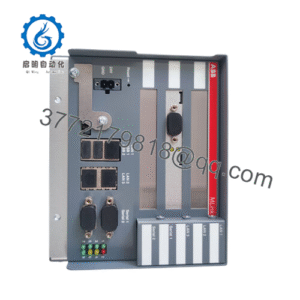Description
| Model Number | TU830V1 |
| Brand | ABB |
| Type | Extended Module Termination Unit |
| Input Voltage | Up to 50 V DC (process voltage) |
| Operating Temp Range | 0°C to 55°C (32°F to 131°F) |
| Mounting Style | DIN rail mount (35mm) |
| Dimensions | 120.5mm x 110mm x 64mm (WxHxD) |
| Weight | 0.2 kg |
| Interface/Bus | Module bus for connection to I/O modules |
| Compliance | Compliant with EU directive 2011/65/EU |
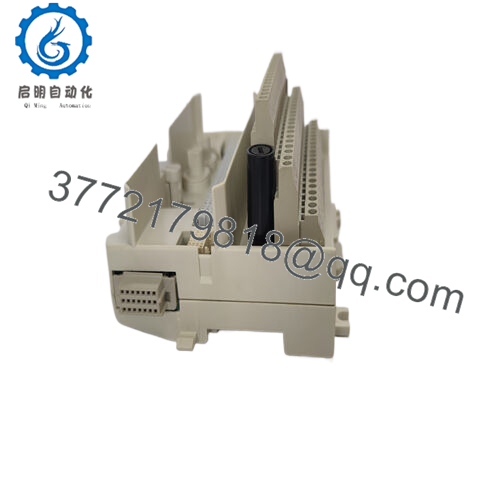
TU830V1
The ABB TU830V1 functions as a key component in the industrial automation infrastructure. It acts as the bridge between field – level I/O devices and the higher – level control systems. Positioned at the edge of the control network, it aggregates signals from a wide variety of sensors, actuators, and other field instruments. Once the signals are collected, the ABB TU830V1 conditions them to ensure optimal quality before transmitting them to the central processing unit. It also relays control commands received from the central unit back to the field equipment, thus enabling a two – way communication flow.
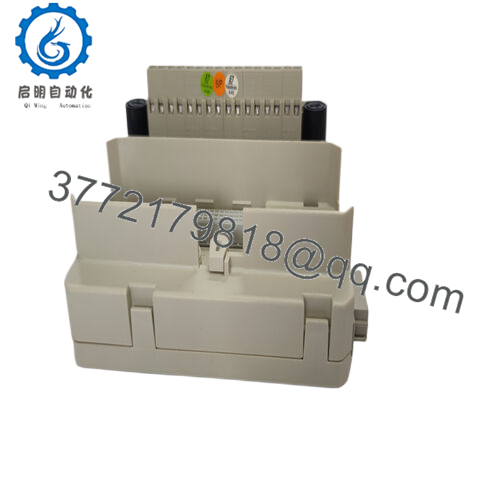
TU830V1
This unit integrates smoothly with ABB’s control platforms and backplane systems. It utilizes a reliable bus interface for data exchange, ensuring high – speed and stable communication. One of the standout features of the ABB TU830V1 is its modular design. This allows for great flexibility in configuration, enabling it to adapt to different application requirements. Whether it’s handling analog signals from sensors measuring temperature, pressure, or flow, digital inputs/outputs for controlling on – off devices, or specialized process variables, the ABB TU830V1 can be tailored accordingly. It also incorporates advanced protection mechanisms against electrical surges and electromagnetic interference (EMI), which is crucial for maintaining signal integrity in the electrically noisy environments typical of industrial settings. Additionally, the unit supports hot – swap functionality for I/O modules. This means that maintenance or reconfiguration of the I/O modules can be carried out without shutting down the entire system, a feature that is invaluable for applications that demand continuous operation.
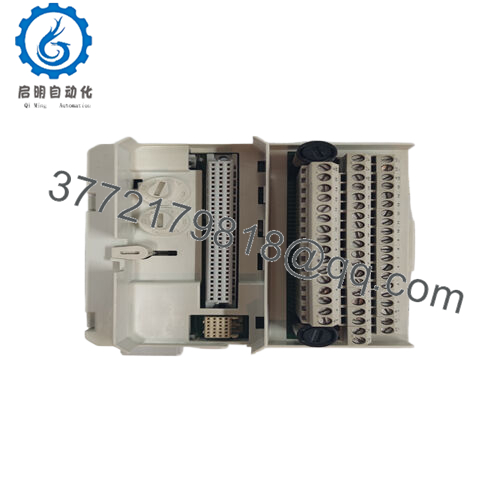
TU830V1
Main features and advantages:
Opting for the ABB TU830V1 offers a plethora of benefits that are highly appealing to automation engineers and plant managers. Its advanced signal conditioning capabilities significantly reduce data transmission errors. In fact, compared to traditional termination units, it can cut down errors by up to 90%, ensuring that the data reaching the control system is accurate. This high level of accuracy is essential for maintaining process stability, especially in applications such as chemical reactions where even slight variations in sensor data can have a significant impact on the outcome.
The modular architecture of the ABB TU830V1 is a major advantage in terms of installation and system expansion. It supports a wide range of I/O modules within a standardized framework. This eliminates the need for complex, custom – made wiring solutions, which in turn reduces engineering time and costs. During system expansions, adding new I/O modules is a breeze, as the ABB TU830V1 is designed to be easily adaptable. Maintenance teams also benefit greatly from the unit’s intuitive diagnostic features. These features provide real – time status updates on the health of the I/O modules and the integrity of the communication channels. In the event of an unplanned outage, this can reduce troubleshooting time by as much as 60%, getting the system back up and running quickly.
Long – term cost savings are another significant advantage of the ABB TU830V1. Built with high – quality industrial – grade components, it is rated for a long operational life, with components that can withstand up to 100,000 hours of use. This durability makes it suitable for harsh industrial environments with extreme temperatures, vibrations, and dust. Moreover, its compatibility with existing ABB control system components means that it can be integrated into older systems without the need for a complete overhaul, protecting existing capital investments while still allowing for system upgrades over time.
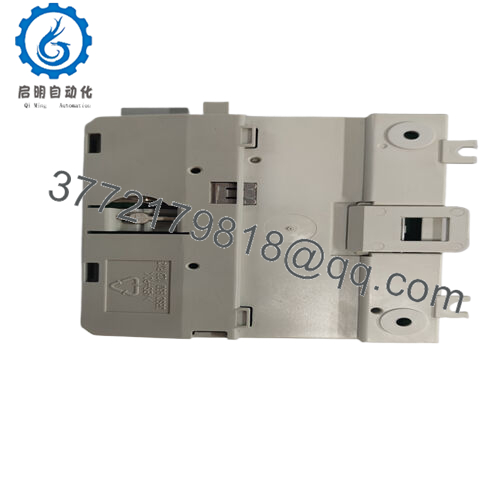
TU830V1
Application areas:
The ABB TU830V1 is well – suited for a variety of industrial applications. In chemical processing plants, it serves as a central connection point for instruments located in hazardous areas. It safely transmits critical process variables such as temperature, pressure, and flow rates to the main control system while adhering to strict safety standards. Its robust EMI filtering ensures that the signals remain accurate and interference – free, even in the presence of high – voltage equipment and powerful motors.
In power generation plants, the ABB TU830V1 is used to connect a vast array of instrumentation associated with turbines and boilers. Given the large physical size of these plants, the ability of the ABB TU830V1 to maintain reliable communication over extended distances is a major advantage. It enables centralized monitoring and control of all the dispersed equipment, which is essential for ensuring the efficient and safe operation of the power generation process.
Water and wastewater treatment facilities also rely on the ABB TU830V1 to integrate a diverse range of sensor networks. These sensors monitor parameters such as pH levels, turbidity, and flow rates. The modular design of the ABB TU830V1 allows for easy expansion as treatment processes are upgraded or modified. Its rugged construction ensures that it can operate reliably in the often wet and corrosive environments typical of these facilities.
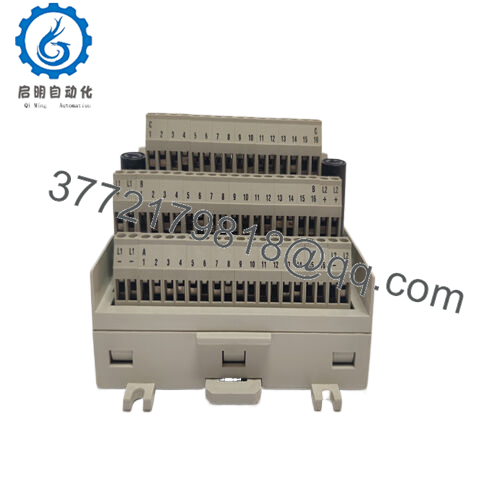
TU830V1
Related products:
ABB TU840V1 – A higher – density version with an expanded I/O capacity, ideal for large – scale industrial systems that require a greater number of connections.
ABB TB830V1 – A fiber – optic – based termination unit, suitable for applications where long – distance communication (up to 20 km) is required, such as in sprawling industrial complexes.
ABB TM830V1 – A redundant termination unit designed for safety – critical applications where system uptime is of utmost importance. It provides fault – tolerance capabilities to prevent system failures.
ABB TU830V2 – The next – generation model with enhanced features, such as improved data throughput and better compatibility with newer communication protocols.
ABB 193 – 4CA20 – 0AA0 – An I/O module adapter that can be used to integrate legacy sensors with the ABB TU830V1, allowing for the reuse of existing equipment in new or upgraded systems.
ABB TU850V1 – An explosion – proof termination unit, certified for use in Zone 2 hazardous areas. It offers an extra layer of safety in environments where there is a risk of explosion.
ABB 972 – 0AA02 – 0XA0 – A specialized bus connector optimized for use with the ABB TU830V1, ensuring a secure and reliable connection.
Installation and maintenance:
Before installing the ABB TU830V1, it is important to verify several key aspects. First, check that the existing bus system has a compatible data transfer rate. Although specific requirements may vary depending on the application, a minimum data transfer rate of 10 Mbps is generally recommended for optimal performance. Ensure that the mounting location has proper grounding, with a grounding resistance of less than 5 ohms. Also, confirm that there is sufficient clearance around the unit, at least 80 mm above and below, to allow for proper cooling and easy access for wiring. The power supply should be able to provide a stable voltage within the specified range (up to 50 V DC for process voltage) with a minimum current capacity of 1 A to support the ABB TU830V1 and any connected I/O modules.
Prior to commissioning, review the address assignment to avoid conflicts with other devices on the network. Make sure that all field instruments connected to the ABB TU830V1 are correctly configured according to the signal types of the installed I/O modules. For installations in hazardous areas, ensure that all cable glands and entry points meet the required explosion protection ratings.
Ongoing maintenance of the ABB TU830V1 is relatively straightforward but essential. Conduct monthly visual inspections to check for any signs of dust accumulation, which can affect performance, or loose connections, which can lead to signal loss. Quarterly, check the torque settings of the terminal blocks to ensure that they are secure. Annually, perform a comprehensive check of the surge protection functionality to make sure that the unit is still protected against electrical surges. Monitor the status LEDs on the unit during regular rounds, as they can provide early warnings of potential communication or module – related issues. Firmware updates, which are available from ABB, should be applied during scheduled maintenance windows to access the latest features and performance improvements.
Other ABB product models:
ABB 5SHY4045L0006 3BHB030310R0001
ABB 5SNG015045P0301
ABB 5X00481G04
ABB 61353364D NGDR-03C
ABB 64783785 MP9-20922K
ABB 68311730 MP9-20976K
ABB 70BK03C-E
ABB 70BK06A-E
ABB 70BK06a-E HESG332194R0001
ABB 70EA02A-ES
ABB 70FV01B-E
ABB 750203/80
ABB 750203/806
ABB 802A028D-3
ABB 802A028D-3
ABB 802A028D-3
ABB 81AB03R1210
ABB 81EA04R1210
ABB 83SR04R1210 GJR2390200R1210
ABB 83SR04R1411 GJR2390200R1411
ABB 83SR51R1210
ABB 83SR51R1210
ABB 8502-BI-DP
ABB 87TS01L-E/R1313 GJR2368900R1313
ABB 87ts50-1214
ABB 88TK50R1210

 WhatsApp: +86 16626708626
WhatsApp: +86 16626708626 Email:
Email:  Phone: +86 16626708626
Phone: +86 16626708626